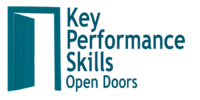Research Base
We did our homework. For each skill, we turned to the experts in their respective fields. We turned to the MIT-Sloan School of Management, the Harvard Business Review, Forbes, and Gartner Research for the latest information regarding the ever-changing landscape of work.
We relied on experts in psychology, such as Richard West, Keith Stanovich, and Daniel Kahneman to understand how the human mind deals with complexity.
We drew from the work of Alex Osborn and Sid Parnes and the research of the Creative Education Foundation to simplify problem solving.
We relied on the work of W. Chan Kim and Renée Mauborgne to navigate strategy and innovation, and on Peter Drucker for goal setting.
We drew from the management expertise of Graham Alexander, Alan Fine, and Sir John Whitmore to outline coaching and mentorship.
And we turned to Steven Covey, Gary Chapman, and others for insights into leadership and communication.




The frameworks used in the Key Performance Skills Program, such as SMART Goals, CPS, ERRC, GROW, and others, are exemplars of best practice.
Each framework is valid, developed by experts or based on industry expertise. Each one is clear and simple, with no more than 5-8 variables.
And each one is adaptive, or flexible and relevant enough to be used for a variety of situations.
Finally, our instructional approach is based on the well-known educational framework of Gradual Release of Responsibility, which begins with a foundation of instructor-lead teaching and modeling of skills, followed by group practice, and independent practice and application. Additionally, the Capstone Project provides opportunity for transfer of knowledge, applying learned skills to relevant work- or life-based situations.
Contact us at contact@KeyPerformanceSkills.com
